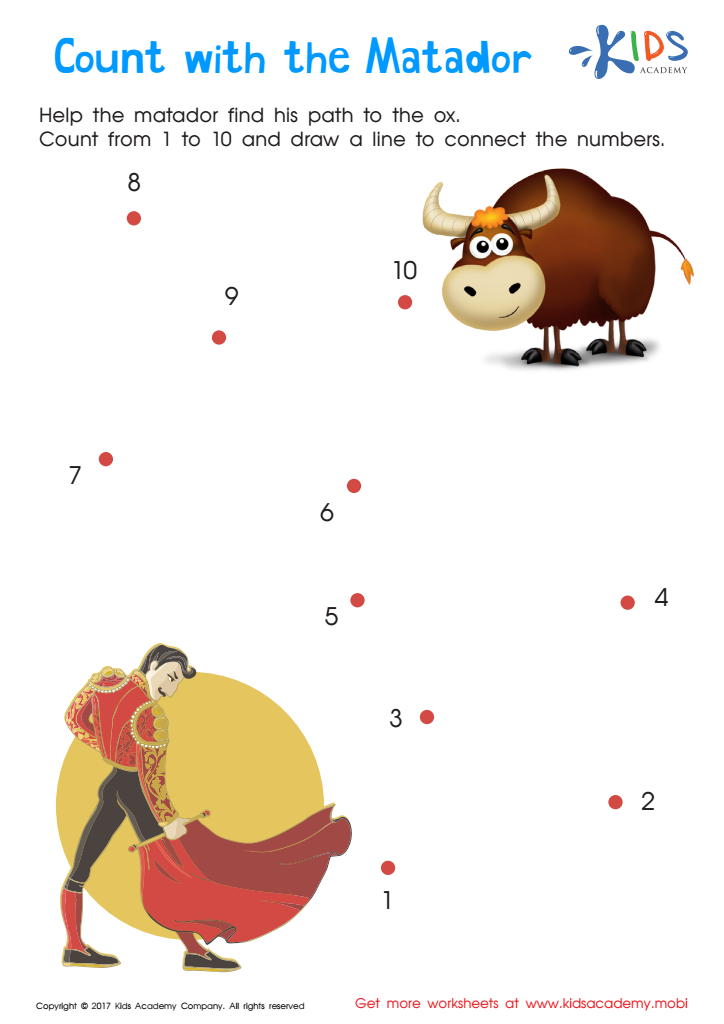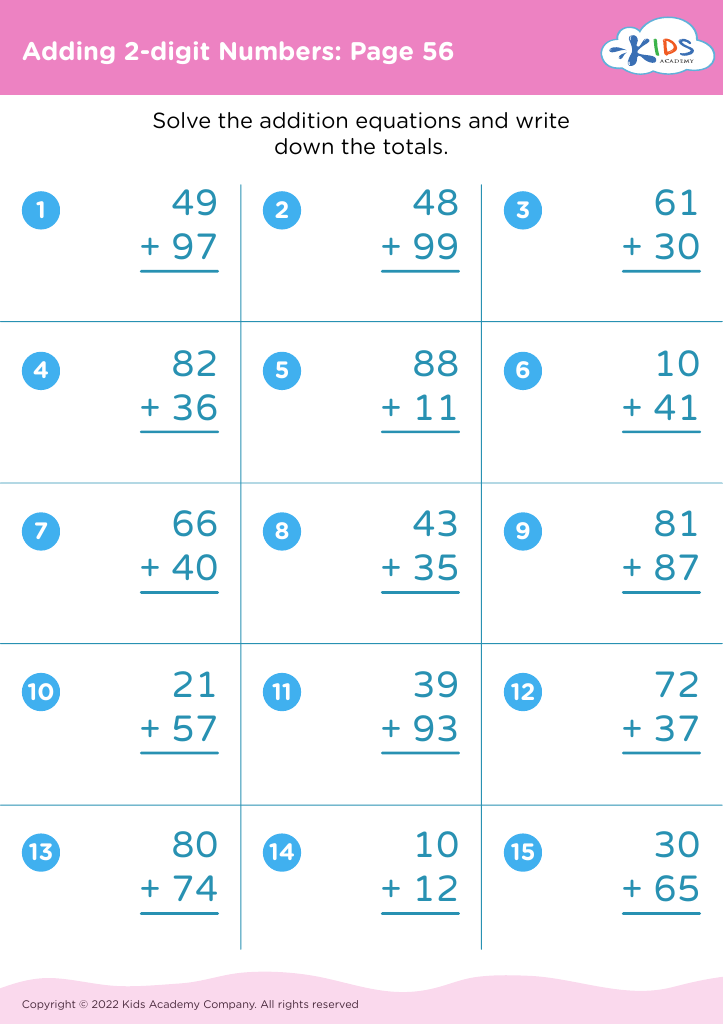Boost critical thinking Math Worksheets for Ages 3-7
4 filtered results
-
From - To
Unlock your child's potential with our "Boost Critical Thinking Math Worksheets" designed for ages 3-7! These engaging, interactive worksheets encourage young minds to explore problem-solving and analytical skills through fun math activities. Each worksheet is tailored to stimulate critical thinking, helping children tackle math challenges in a playful way. From puzzles to number games, your child will develop essential skills while boosting their confidence. Perfect for homeschooling or classroom use, our worksheets align with educational standards, making learning both effective and enjoyable. Dive into a world of creativity and logic, and watch your child's love for math blossom!
Parents and teachers should care about boosting critical thinking in math for children ages 3 to 7 because this foundational skill is crucial for overall cognitive development and future academic success. Early exposure to critical thinking encourages children to analyze problems, reason through challenges, and develop creative solutions.
At this age, children are naturally curious, and engaging them in mathematical reasoning cultivates their problem-solving abilities in a fun and interactive way. Through activities like puzzles, games, and hands-on projects, children learn to approach mathematics with confidence, fostering a positive attitude toward the subject.
Furthermore, critical thinking in math promotes a deeper understanding of concepts rather than rote memorization. It helps children develop essential skills such as logical reasoning, pattern recognition, and abstraction. These abilities not only benefit their mathematical learning but also translate to competencies in other subjects and real-life situations.
Involving parents and teachers in this process creates a supportive learning environment. Working together to encourage mathematical exploration prepares children for the more complex challenges they will face later in school. Ultimately, nurturing critical thinking in math builds a strong foundation for lifelong learning and adaptability in an ever-evolving world.

 Assign to My Students
Assign to My Students























